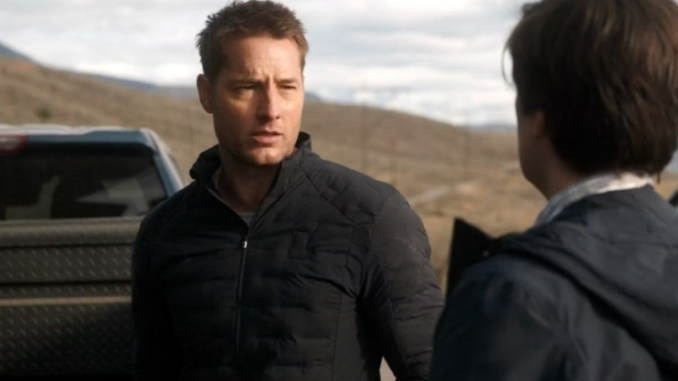
Why is ‘Tracker’ being compared to ‘Reacher’ in this article?
From the moment Tracker first debuted on CBS earlier this year, there were immediate comparisons to the Prime Video series Reacher. Aside from the phonetic connection, both shows are based on thriller novels, and each follows a lone wolf protagonist who often rescues people from impossible (and often dangerous) situations. But there’s one thing that really sets Tracker and Reacher apart––aside from the obvious gap between their respective budgets––and that’s the genuine compassion Colter Shaw (Justin Hartley) has for each of his clients. It’s not that Jack Reacher (Alan Ritchson) can’t be that way himself, but the way Tracker builds each episode only helps us see Colter as the better guy––even when Reacher easily wins a fight.
![]()
‘Tracker’ Is Not ‘Reacher’ and That’s Actually a Good Thing The truth is, comparisons aside, Tracker is not Reacher. Sure, the two shows share many of the similarities mentioned above, as well as a small cast of supporting characters who help the leading men on their latest adventures. But beyond that, the shows couldn’t be more different. While each new season of Reacher takes place in a completely new location, each new episode of Tracker covers a different town across America. In fact, the title of each episode comes from wherever Colter Shaw has parked his camper that week, and that’s part of the show’s appeal. As someone who loves to travel, Colter doesn’t spend enough time in any one place to learn more than he should, making him almost more of a nomad than Jack Reacher – at least on television. Reacher also leans more heavily on spectacular action than Tracker. While that works wonders for Lee Child’s adaptation, it wouldn’t fit the world Tracker has created. Yes, Colter Shaw can fight. He can even take on the massive force that is Jack Reacher (though he probably won’t win). But that’s not the point of Tracker. Each episode takes the time to get to know Colter’s newest client, and in return, Colter shares some of his own past or experiences so we can get to know him better. There’s a human connection to Tracker that Reacher doesn’t usually have. It’s not that Reacher’s perspective is a bad thing. Gun-and-bullet action mysteries certainly have their place (and we love them for what they are), but that’s not the kind of show Tracker is. No doubt future episodes (and hopefully future seasons) will continue to explore Colter’s fighting style and physique, but even if and when that happens, the show will continue to take the time to explore the latest job (and new group of characters) our hero has taken on. But what Tracker lacks in action, it makes up for in a lengthy arc that involves the mystery of Colter Shaw. Jack Reacher himself is an enigma that viewers continue to learn more about each season, but Colter Shaw is not a former member of the United States Army like Reacher. Instead, his complicated upbringing with a survivalist father shaped him, and the secrets hidden in his backstory have yet to be revealed on screen. Due to the nature of Tracker’s weekly mysteries, we learn more about Colter with each episode, even if it’s just the little things he says to make sure those around him feel seen, heard, and safe. Unlike Reacher, he doesn’t work odd jobs (unless you count the fact that all of his jobs are a little odd) and instead maintains a consistent, albeit strange, career. Reacher, on the other hand, develops its protagonist in a slightly different way. He’s a man who can be tried for murder one season and then reunite with his old unit to avenge another murder the next. We learn more about Jack Reacher in general, while each episode of Tracker gives us new intelligence on Colter Shaw. Likewise, because of Colter’s regular co-stars (though he doesn’t often interact directly with them), there’s a consistent dynamic here that the CBS series gives us that Reacher doesn’t. Sure, Malcolm Goodwin will be back for a while as Oscar Finlay in Reacher Season 2, but beyond that, the titular hero is on his own with a new group of supporting characters each season. Instead, Tracker opts to give Colter a real team that’s always there to support him, even if he prefers to work alone.
Plus, Tracker is designed for a wide audience based on